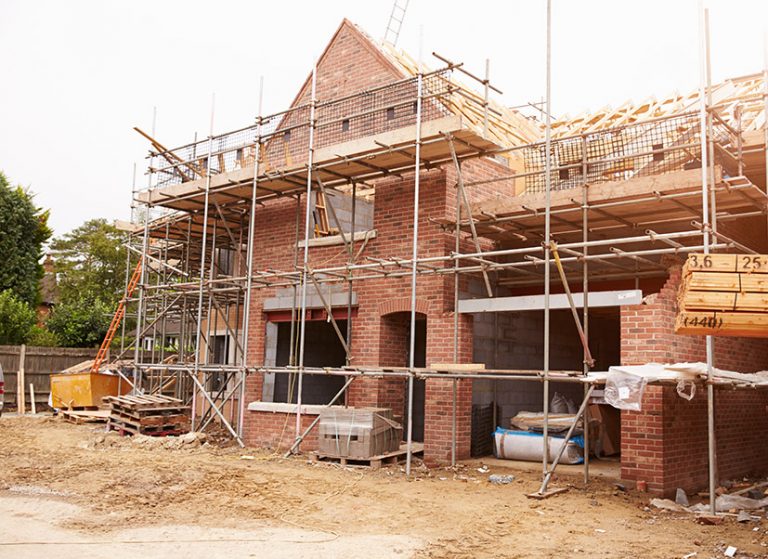Dunelm appoints new CEO
Businesses challenge BID levy despite legal threats
A dispute has arisen over the Business Improvement District (BID) levy in Spalding, with a group of business owners refusing to pay the charge. The BID, which was created following a local vote in July 2024, aims to fund town centre improvements and increase foot traffic. However, some businesses argue the vote was flawed due to missing ballots and have vowed not to pay the levy.
The levy is calculated based on a business’s rateable value, meaning larger businesses contribute more. Despite the backlash, South Holland District Council has defended the process, asserting the vote was legally conducted and in line with national guidelines.
Small business owners, including photographer Julian Wheeler and beautician Macie Harman, are among those opposing the BID. While Wheeler has expressed his intent to challenge the legality of the vote, Harman has opted to pay the levy to avoid further costs, but still plans to fight the BID’s validity.
The council has maintained that the ballot and levy collection process were fair and properly managed, with strict oversight from an electoral services provider and the returning officer. Recovery actions have been handled in accordance with national regulations, with the council standing firm on the legitimacy of the levy.
Homes plan near Derby’s ancient woodland faces rejection
A proposal for 150 new homes on the outskirts of Derby is facing significant opposition, primarily due to concerns over its potential impact on Chaddesden Wood, a designated ancient woodland. The land, spanning 20.3 acres, is currently under review by Derby City Council after being submitted by JGP Properties Ltd. The developer claims the scheme has been designed with environmental considerations in mind, aiming for a seamless integration with the surrounding landscape.
However, the proposal has garnered nearly 1,500 objections, including from prominent groups such as CPRE Derbyshire, the Woodland Trust, and the Friends of Chaddesden Wood. These groups express concerns about the loss of habitats, potential harm to wildlife, and the erosion of green wedge land north of the city. Chaddesden Wood is recognised as both a nature reserve and ancient woodland, home to veteran trees that are irreplaceable.
A council report highlights the already significant human activity within the woodland and warns that new housing would exacerbate pressure on the area. Additionally, the development would fragment the remaining Oakwood green wedge, isolating the woodland from the surrounding open countryside.
Despite the developer’s assertion that the project represents a respectful transition between urban and rural areas, the proposed development faces strong pushback. Planning officials are expected to recommend refusal when the application is discussed later this week.
Turnover rises 22% at Howes Percival
Could you take home Excellence in Design at the East Midlands Bricks Awards 2025? Enter now!

The East Midlands Bricks Awards 2025
What: The East Midlands Bricks Awards 2025 When: Thursday 2nd October (4.30pm – 7.30pm) Where: Derek Randall Suite, Trent Bridge Cricket Ground, Nottingham Keynote speaker: Councillor Nadine Peatfield – Leader of Derby City Council, Cabinet Member for City Centre, Regeneration, Strategy and Policy, and Deputy Mayor of the East Midlands Tickets: Available here Dress code: Standard business attire Thanks to our sponsors:











To be held at:

Peak Cluster carbon capture project to create thousands of jobs
A major carbon capture initiative is set to transform the cement and lime industries in the Peak District, with the creation of thousands of jobs across the Midlands and North West of England. The £59.6 million Peak Cluster project aims to capture carbon dioxide (CO2) from cement and lime factories in Derbyshire, Staffordshire, and the North West, transporting it via pipeline to be stored in depleted gas fields beneath the Irish Sea.
The project, described as the world’s largest cement decarbonisation effort, is expected to generate around 300 permanent jobs and support over 2,000 roles in cement and lime production. In addition, approximately 1,200 temporary positions will be created during the construction phase. Together with the Morecambe Net Zero carbon storage project, the initiatives are anticipated to support up to 13,000 jobs across the region.
Carbon capture and storage (CCS) technology, which prevents CO2 from entering the atmosphere, is seen as a vital part of the UK’s plan to achieve net-zero emissions. The Peak Cluster project will significantly reduce emissions from the cement and lime sectors, which are among the hardest to decarbonise due to their high CO2 output. The scheme is expected to prevent more than three million tonnes of CO2 from being released each year.
The government has committed £28.6 million from the National Wealth Fund (NWF), with additional funding from private sector partners, including Holcim, Tarmac, Breedon, and Progressive Energy. The initiative is part of the UK’s broader push to build a resilient carbon capture industry, with further investments in sectors such as hydrogen, electric vehicle supply chains, and steel.
The Peak Cluster project is also seen as a catalyst for the UK’s clean energy transition, driving job creation and economic growth in the industrial heartlands. It is expected to help modernise the cement and lime industries, positioning the UK as a global leader in carbon capture technology.
Hospice in Leicestershire cuts patient services amid £2m deficit
A hospice in Leicestershire is making significant reductions in patient services to address a £2m funding shortfall. LOROS Hospice, a vital community resource, has announced cuts to inpatient beds, day therapy, and a range of other patient support services.
The charity has cited rising operational costs, decreased income, and increased demand due to an ageing population as contributing factors to the financial strain. As part of the adjustments, the number of inpatient beds will be reduced from 31 to 20, and day therapy services will experience a 25% cut. Physiotherapy, occupational therapy, social work, chaplaincy, and complementary therapies will also see reductions of up to 50%. Additionally, the volunteer home visiting service will be discontinued.
LOROS estimates that 69 jobs could be affected, although the final count may fluctuate due to reduced hours and staff transitioning into NHS roles.
The hospice, which operates on a budget of approximately £932 per hour, relies heavily on fundraising, with only 20% of its funding provided by the NHS. The charity needs to raise £9m annually to maintain operations. In response to the financial challenges, LOROS has ramped up its summer fundraising activities, including the “Stomp Round Leicester” art trail.
Despite these challenges, LOROS has pledged to continue offering high-quality care, ensuring that the services that remain will still support the needs of the community.
Chesterfield retail destination snapped up
Sheet Anchor Evolve, part of M Core – the privately held property investment and management collective – has acquired Vicar Lane in Chesterfield, an open-air retail destination at the heart of the town centre.
The acquisition reinforces M Core’s commitment to investing in convenience-led retail and delivering long-term value through intensive asset and property management. The 202,000 sq ft scheme comprises 34 units and a 400-space car park, with a mix of fashion, food, and essential services retailers.
Vicar Lane is home to a range of national and regional occupiers including JD Sports, H&M, Superdrug, Iceland, River Island, and The Works. The scheme also includes civic space at St James’ Square and is adjacent to several major regeneration projects including the Chesterfield Waterside scheme.
Danny O’Keefe, founding partner at Sheet Anchor Evolve, said: “Vicar Lane is a well-positioned retail destination in a town with ambition and momentum. As a long-term investor, our strength lies in our ability to invest in places, work closely with tenants and local stakeholders, and use our in-house expertise to unlock value.
“This is exactly the type of asset we can evolve through intensive management – enhancing its relevance to the community and supporting its role in Chesterfield’s wider regeneration.”
Bradley Maher, Cited and Oliver Horton, GCW acted for Sheet Anchor Evolve and James Hessey, Time Retail Partners acted for the vendor.
Planning approved for Northamptonshire supported accommodation refurbishment
Planning permission has been granted for the transformation of an existing apartment building at Broadmead Court in Northampton into supported accommodation for homeless individuals with complex needs. The redevelopment will create 20 apartments, along with updated communal areas and improved landscaping.
West Northamptonshire Council secured funding for a feasibility proposal, which outlines plans for a full refurbishment. The project aims to provide high-quality living spaces, enhance shared amenities, and improve energy efficiency through building fabric upgrades.
GSSArchitecture has been appointed as the architect, lead designer, and principal designer for the project, working alongside Steele & Bray as the principal contractor. The project team also includes Expert MEP for mechanical, electrical, and plumbing services, Blackwell Consultants as civil and structural engineers, and Gleeds as quantity surveyors and employers’ agent.
Key upgrades will focus on improving energy efficiency, with the installation of insulated render on external walls, high-performance windows and doors, and better insulation on the ground floor. The goal is to reduce heat loss and enhance building performance.
This development aligns with broader homelessness prevention and sustainable housing objectives in the region.












